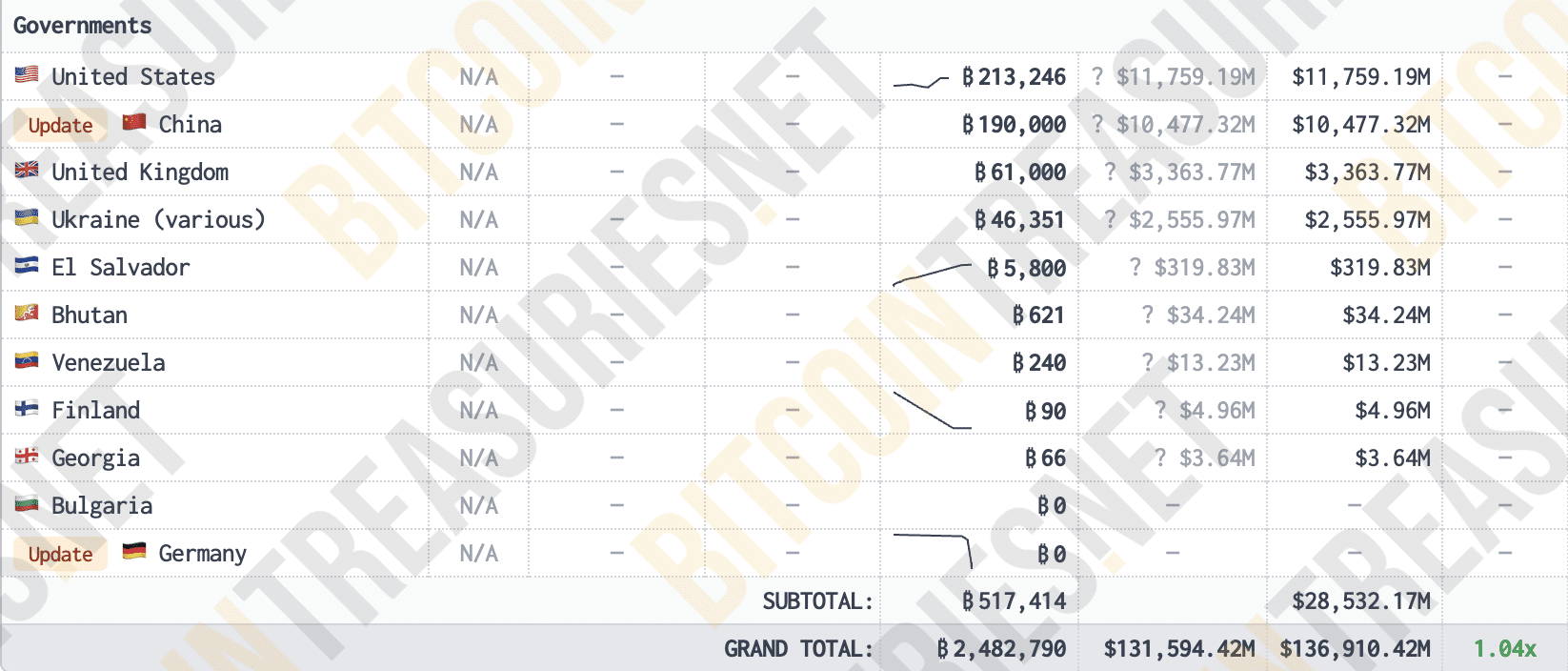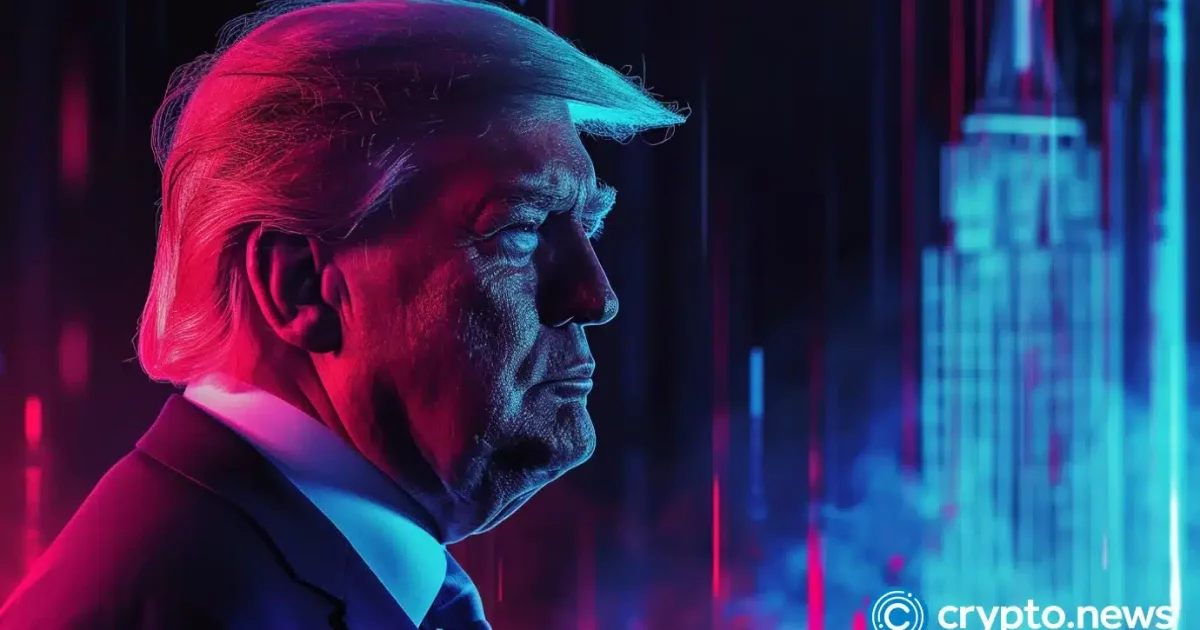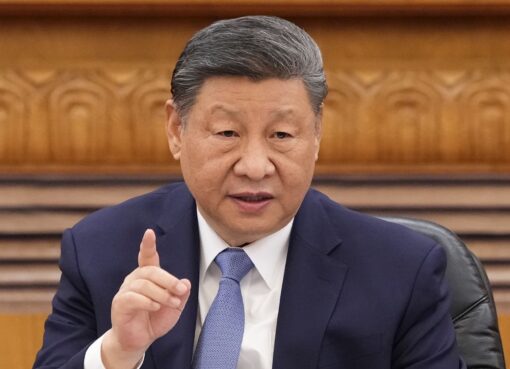Presidential candidate and crypto industry supporter Donald Trump believes the U.S. government should not sell cryptocurrency.
During a podcast with Adin Ross, he mentioned the recent sale of Bitcoin (BTC) by the U.S. government and asked Trump if he would support crypto if he won the November 2024 election.
If elected, it will be the policy of my administration to keep 100% of all the bitcoin the U.S. government currently holds or acquires into the future.
Trump then turned his attention to extolling the virtues of Bitcoin. He called the cryptocurrency “very modern” and compared it to artificial intelligence.
He added that if the U.S. will not innovate in the field of digital assets, other countries will, including China — the most significant geopolitical rival — which is already making progress in the cryptocurrency and artificial intelligence sectors.
How much Bitcoin does the U.S. have on its balance sheet?
According to analysts from the Arkham Intelligence platform, in the spring, the U.S. government had more than 210,000 BTC on its balance sheet, making it one of the largest holders of Bitcoin.
In addition to Bitcoin, the U.S. government had about $200 million in other cryptocurrencies, including Ethereum (ETH), as well as Tether (USDT) and Circle (USDC) stablecoins.
In June, $243 million in BTC was transferred from a U.S. government address to the Coinbase exchange. These funds were confiscated from the darknet market operator Banmeet Singh, who pleaded guilty to drug trafficking and money laundering.
At the end of July, the U.S. government also moved 28,000 BTC to an unknown wallet. Then, 19,800 BTC of these coins were sent to one address and 10,000 BTC to another.
At the time of writing, according to Arkham Intelligence, the address belonging to the U.S. government stores cryptocurrencies worth $11.1 billion, including more than 203,000 BTC.
How is the U.S. government-seized BTC sold?
Since 2014, the U.S. Marshals Service has sold seized BTC through closed auctions. However, in late June, it was announced that the USMS, a part of the Justice Department responsible for asset forfeiture, had chosen Coinbase Prime to store and trade seized cryptocurrency.
The Coinbase Prime brokerage platform allows clients to store, buy, sell, and invest in cryptocurrencies. It is also the primary partner for most spot crypto ETFs.
Trump’s plans for government-seized BTC
At the Bitcoin 2024 conference, Trump announced his intention to create a strategic reserve of Bitcoin. He emphasized that cryptocurrencies can be essential to the country’s economic competitiveness and promised never to sell bitcoins confiscated by the U.S. government.
Republican Senator Cynthia Lummis, in support of Trump’s statement, announced plans to introduce a bill to purchase 1 million BTC for the U.S. Treasury, which is 5% of the asset’s total supply.
However, Lummis and Trump are far from the first to suggest introducing Bitcoin to government reserves. Michael Saylor, the former head of the MicroStrategy software developer, also expressed such thoughts. He proposed purchasing 4 million BTC for the U.S. Treasury.
In addition, ARK Invest CEO Cathie Wood also supported using Bitcoin as a reserve. She noted that this will only matter if the first cryptocurrency is not an instrument of monetary policy but is simply on the U.S. balance sheet.
Which countries have the most Bitcoins?
While investors buy bitcoin on the open market by investing real money, states more often obtain BTC through confiscation. Governments are among the largest holders of Bitcoins due to seizures from criminals.
Of all the countries holding Bitcoin, only El Salvador actively buys this crypto (since 2021) and mines it as part of the state-run Volcano Energy initiative, which uses geothermal sources as energy. Neither the United States, China, the United Kingdom, nor Germany have ever officially purchased cryptocurrency. However, thanks to confiscations from criminals, governments of large countries have accumulated crypto assets worth billions of dollars.
According to the Bitcointreasuries service, the combined crypto reserves of countries are estimated at 517,000 BTC, or more than $28 billion.

The U.S. government is considered the largest holder of Bitcoin among all countries. China is second on the Bitcointreasuries list — its reserves are estimated at 190,000 BTC. In 2020, the authorities seized 195,000 BTC and several other cryptocurrencies from the PlusToken financial pyramid in 2020.
The United Kingdom takes third place in the Bitcointreasuries ranking. The size of its reserves is estimated at 61,000 BTC, which is the amount of Bitcoins seized by the authorities in January.
Is Trump right?
Trump believes that the decision to store assets will become the core of the BTC strategic national reserve and expressed confidence that Bitcoin will overtake gold and silver in market capitalization.
However, Bitcoin reserves have drawbacks. The main one is significant volatility. This is the problem faced by the authorities of El Salvador, whose BTC reserves have decreased by a third due to a severe drop in Bitcoin’s value.
Nevertheless, BTC reserves can be beneficial in terms of diversification. Countries may seek to create alternative assets outside of traditional centralized financial systems. In addition, some countries may seek ways to conduct international settlements, bypassing the restrictions imposed on conventional financial transactions.




